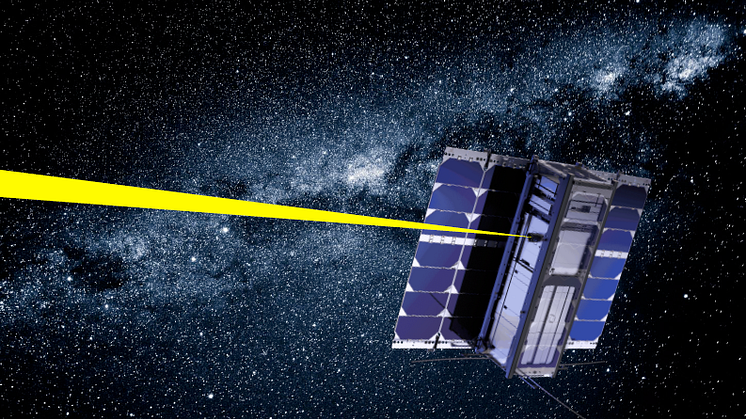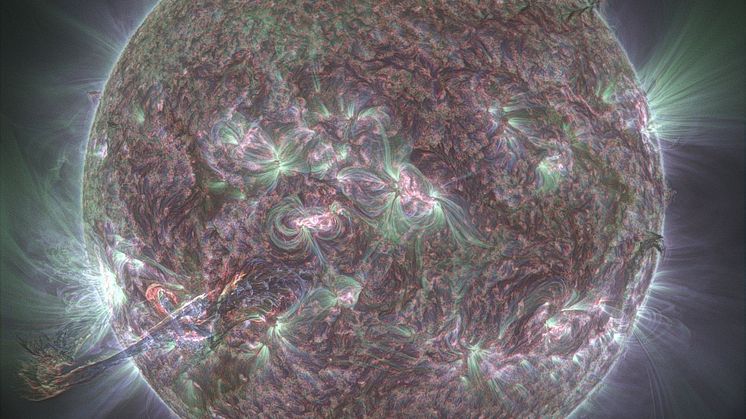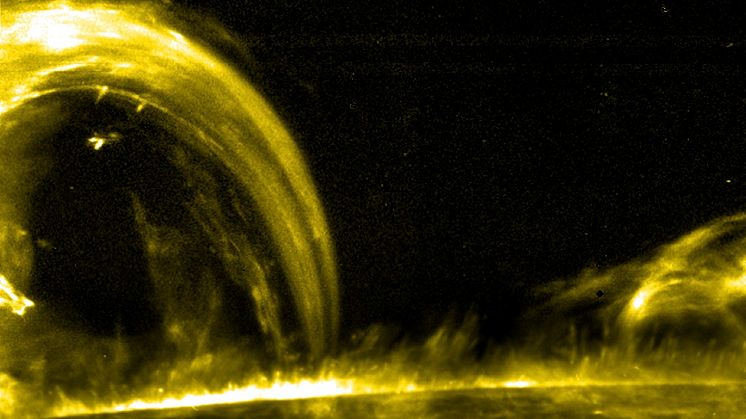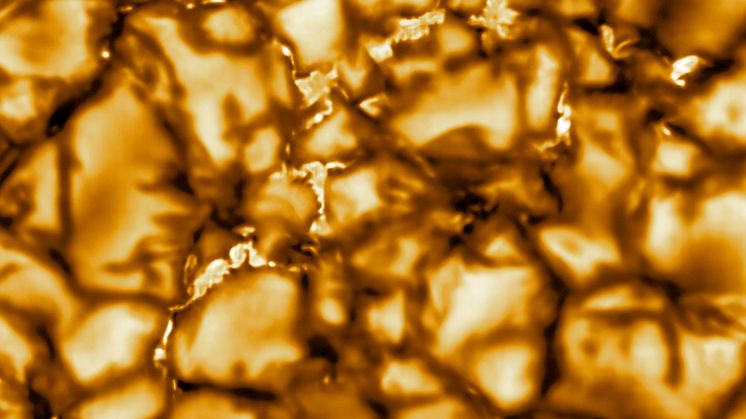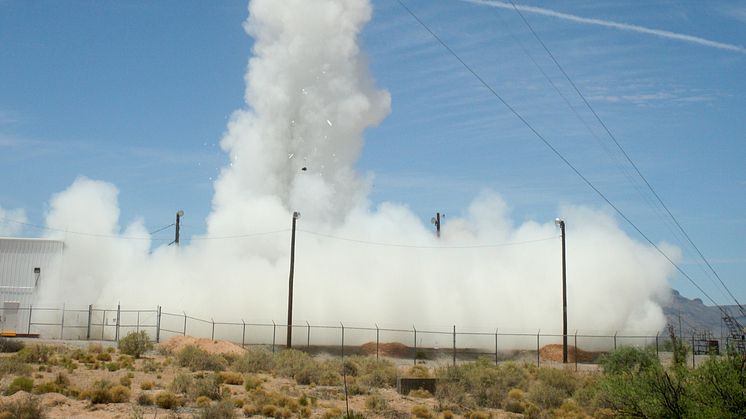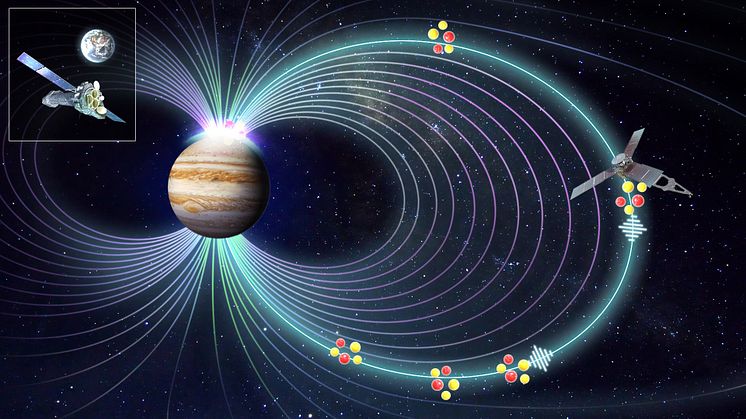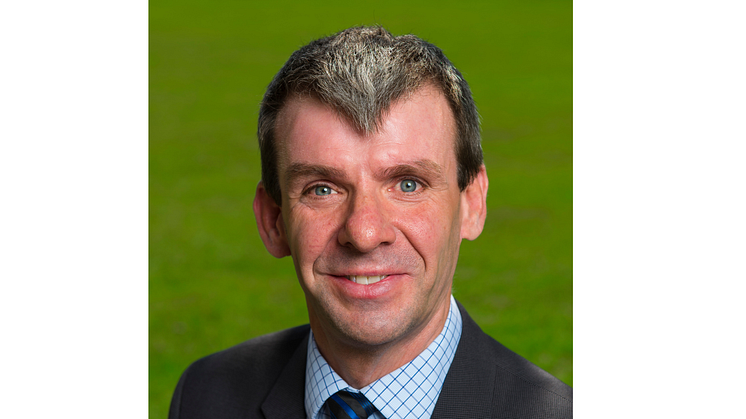
Press release -
UN space weather expert to join Northumbria University as Royal Society Wolfson Visiting Fellow
A leading physicist and Chair of the United Nations space weather expert group is to join Northumbria University for one year after being awarded a Royal Society Wolfson Visiting Fellowship.
Professor Ian Mann is a Professor in Physics at the University of Alberta in Canada and is renowned for his research on the impact of space storms on the Earth.
Royal Society Wolfson Visiting Fellowships enable international researchers and their host organisation to develop ongoing collaborative research links, share ideas and practice.
Professor Mann is one of eight leading international academics to have been awarded the first fellowship or visiting fellowship since the Royal Society Wolfson Fellowships scheme was relaunched last year.
Professor Mann’s Fellowship will allow him to work with academics from Northumbria University’s internationally renowned Solar Terrestrial Science research group part time for a period of two years from July this year, including a one-year visit to the UK.
His research will focus on two of the most important outstanding questions in space weather science: What causes the acceleration of so-called "satellite killer" high energy electron space radiation? and What causes the explosive release of energy in near-Earth space?
The proposed research will advance fundamental understanding and have potentially important applications for the mitigation of space weather effects on technological infrastructure including satellites and the electric power grid.
Over the next two years, Professor Mann will support the work of Northumbria academics involved in the SWIMMR (Space Weather Instrumentation, Measurement, Modelling and Risk) project – a £20 million, four-year programme, announced by the Prime Minister Boris Johnson at the UN General Assembly in 2019, that will improve the UK's capabilities for space weather monitoring and prediction.
Professor James McLaughlin leads Northumbria’s Solar Terrestrial Science research group. Speaking about Professor Mann’s fellowship he said: “This Royal Society Wolfson Visiting Fellowship will enable Professor Mann to integrate his significant research experience of space weather processes into the UK’s national SWIMMR space weather programme, in support of the UK Met Office. Northumbria University is already playing multiple, key roles in SWIMMR, and Professor Mann’s visit will further enrich and enhance this critical national endeavour.”
Professor Mann, who is currently chair of the Expert Group on Space Weather at the United Nations Committee on the Peaceful Uses of Outer Space (COPUOS), said: “Space weather is increasingly recognised as a potential threat to the technological infrastructure upon which we increasingly rely on the 21st Century. I am delighted to have the opportunity to work with UK experts on this topic through the award of a Royal Society Wolfson Visiting Fellowship.”
The Northumbria team of academics Professor Mann will be joining are already leading globally significant research in the field of space weather.
Dr Shaun Bloomfield is currently working with the Met Office and academics from Aberystwyth, Durham and Reading Universities, to build an improved system for forecasting solar storms as part of the Space Weather Empirical Ensemble Package (SWEEP).
Meanwhile Dr Eamon Scullion, Dr Richard Morton and Professor James McLaughlin, have played a leading role in the development and installation of the National Science Foundation’s (NSF) Daniel K. Inouye Solar Telescope (DKIST) in Hawaii.
The telescope will play a critical role in allowing scientists to better understand the Sun and space weather, with the Northumbria team developing software to extract data from the telescope, providing insight into the physical mechanisms responsible for energy transfer in the Sun's atmosphere and how this relates to solar variability.
Dr Scullion has also just completed the first phase of a ground-breaking Laser Optical Communications for CubeSats project, funded by the UK Space Agency. Speaking about the project, Dr Scullion said: “We are establishing a new paradigm for space-based communications, with a marked increase in data transmission rates, transforming CubeSats into critical space assets”.
In addition, the team has recently been strengthened with the appointments of Professor Jonathan Rae and Professor Clare Watt, who both specialise in experimental space plasma physics, with particular reference to the science underpinning space weather, and who are also both involved in the SWIMMR project.
Julie Maxton, Executive Director of the Royal Society said: “We are delighted to have appointed three Royal Society Wolfson Fellows and the first five Royal Society Wolfson Visiting Fellows in the inaugural round for the refreshed programme supported in partnership with the Wolfson Foundation.
“It is increasingly important to support world-leading talent and foster international collaborative research links. By supporting the careers of outstanding international scientists in the UK, we can strengthen and build a critical mass of excellence in the best university departments and research institutions of the UK, maximising innovation and creativity in science for the benefit of humanity.”
Paul Ramsbottom, CEO of the Wolfson Foundation said: “We have a long and fruitful partnership with the Royal Society, including across two decades on the various iterations of this important programme. We are delighted to have an ongoing involvement and welcome the new flexibility offered by the Visiting Fellowships. Global collaboration in science has never been more crucial, and we are excited to see the range and ambition of the research being pursued by the Fellows announced today.”
Northumbria University’s Solar-Terrestrial Science research group is part of Unit of Assessment 14 Geography and Environmental Studies in the Research Excellence Framework (REF) 2021. Find out more about Northumbria University’s REF 2021 submission here.
Topics
Categories
Northumbria is a research-rich, business-focused, professional university with a global reputation for academic excellence. Find out more about us at www.northumbria.ac.uk --- Please contact our Media and Communications team at media.communications@northumbria.ac.uk with any media enquiries or interview requests ---








